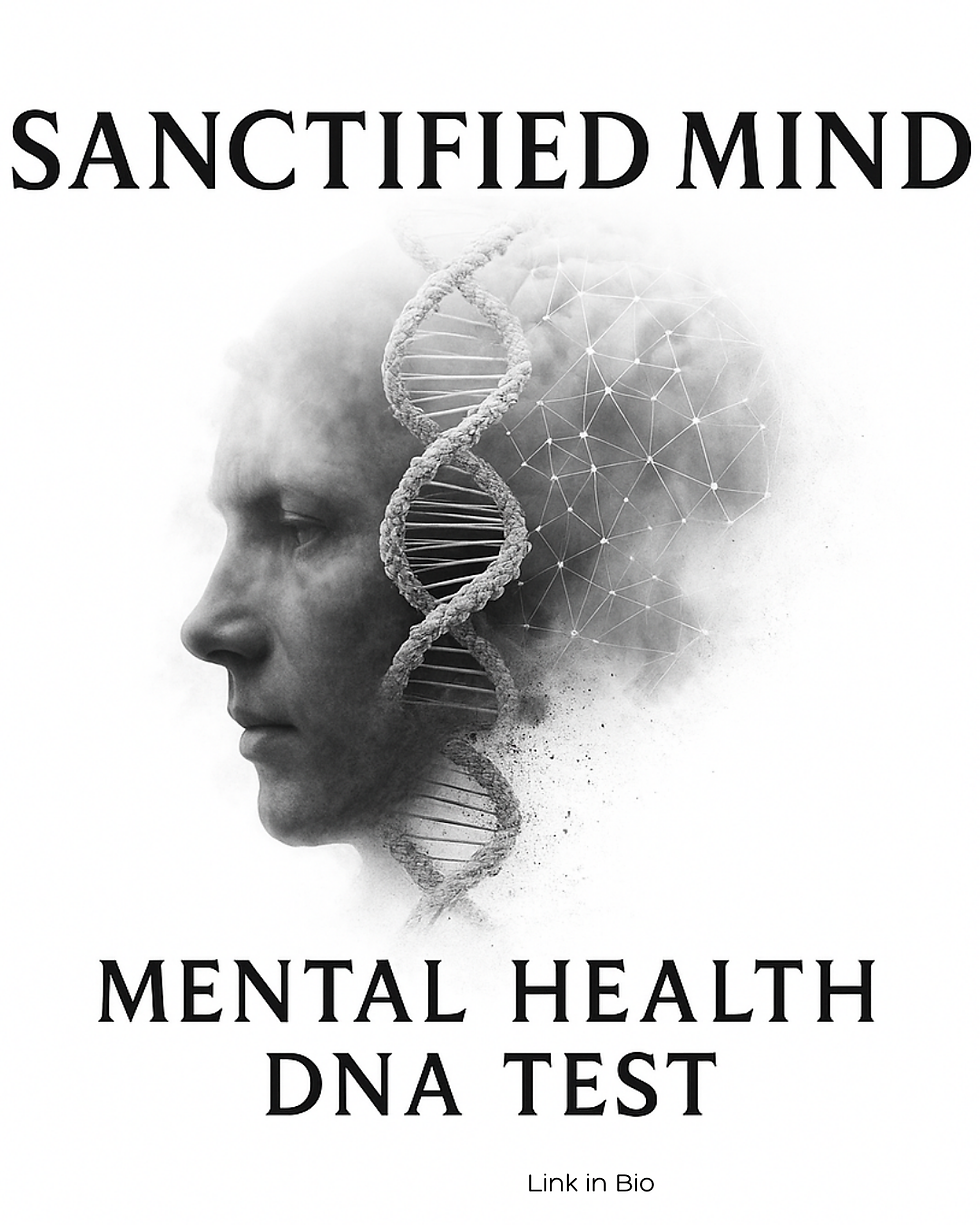Our Process Simplified: How DNA Testing Brings Clarity to Mental Health
- Niki Porter

- Aug 23, 2025
- 2 min read
When it comes to mental health, many families and therapists are searching for answers beyond trial-and-error. That’s where DNA mental health testing comes in. Our process is designed to be simple, supportive, and science-backed—so clients and clinicians can move forward with clarity and confidence.
Whether you’re in Texas, the Hill Country region, or anywhere in the U.S., here’s how our genomic insights for anxiety, depression, eating disorders, and other psychiatric conditions works.
Step 1: A Simple DNA Collection Kit
We’ve made the process easy. No hospital visits or complicated equipment. You’ll receive a saliva or cheek swab kit that can be completed at home or in your therapist’s office. Once collected, the sample is shipped to our certified lab right here in the U.S.
Step 2: Analyzing Your Genetic Blueprint
Inside your DNA are millions of letters that form your unique code. Tiny variations—called SNPs (single nucleotide polymorphisms)—can influence how your brain and body regulate key systems.
We focus on biomarkers related to:
Mood regulation pathways: Serotonin, dopamine, and norepinephrine signaling, linked to anxiety, depression, and motivation.
Stress response: Genes involved in the HPA axis, cortisol regulation, and trauma resilience.
Nutrient metabolism: How your body processes folate, B12, and methyl donors that support brain chemistry.
Neural plasticity: Pathways that affect learning, memory, and adaptability.
Metabolic function: Glucose regulation and mitochondrial health, which play a role in fatigue, cognition, and emotional balance.
Behavioral predispositions: Variants that may influence impulsivity, emotional sensitivity, or social behavior—not diagnostic of conditions like narcissism, but offering insight into the biology that shapes how we think, feel, and act.
Step 3: Epigenetics—How Life Experiences Shape Your Genes
Your DNA isn’t your destiny. The environment—stress, sleep, trauma, nutrition, exercise—can “switch” certain genes on or off. This is called epigenetics.
By considering both genetic predispositions and lifestyle influences, our reports provide a whole-person view of risk and resilience. This helps families understand why one child may be more stress-sensitive while another shows stronger coping traits, even in the same household.
Step 4: From Lab Data to Therapist-Friendly Insights
We don’t just send you a list of confusing gene codes. Instead, we translate complex biology into clear, actionable insights that therapists can use to guide client care:
Which brain and metabolic pathways may be under stress.
How nutrition, sleep, and movement could support recovery.
Which medication classes might be metabolized differently (pharmacogenomics).
How genetic tendencies can help explain behaviors, and what strategies may help manage them.
Step 5: Supporting the Journey Together
Mental health care is a journey—for clients, families, and clinicians. Our DNA testing provides a foundation for personalized, compassionate, and effective support.
By combining genetics, epigenetics, and therapy, we help uncover why mental health challenges show up—and what can be done to address them.
Why This Matters
For therapists: Gain a deeper biological perspective on clients, guiding care with more precision.
For families: Find clarity and direction on treatment and lifestyle options.
For clients: Understand that mental health is not a mystery—it’s a blend of biology, environment, and hope.
Resources
National Institutes of Health: Epigenetics and Mental Health
PubMed Central: Genome–Environment Interactions in Psychiatry


Comments